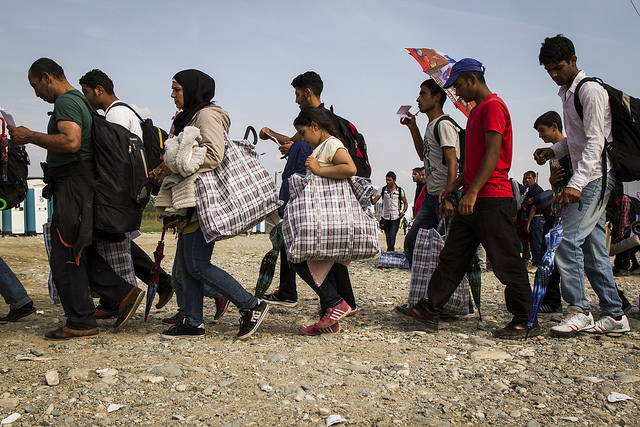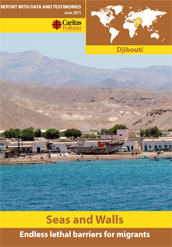The events of 2015 in which hundreds of thousands of refugees and migrants sought help in Europe show that walls and border security don’t prevent people from migrating, they just increase their suffering.
According to the United Nations Refugee Agency 59.5 million people were forced to emigrate from their places of origin due to armed conflicts, persecution, widespread violence and human rights violations by the end of 2014.
Caritas Italiana’s “Seas and Walls” report enables a better understanding of the events that force people to become migrants. It provides insight into the global migration emergency and it also contains some important reflections on human trafficking and the Church’s response. It reminds us of Pope Francis’ message that “it is necessary to respond to the globalisation of migration with the globalisation of charity and cooperation, in such a way as to make the conditions of migrants more humane”.
Seas and Walls invites reflection on global mobility and how solidarity responds to this urgent challenge. It raises the issues of justice and the effectiveness of procedures.
Many people migrate and they don’t automatically have the right to live in the countries that receive them. However, this doesn’t detract from the fact that their human rights should in any case be respected. Some people seek better luck in dealing with problems of extreme poverty and lack of opportunities in their own countries. Migration introduces new blood into slugging European countries. Migrants often provide the caring backbone to aging European populations when families can’t provide adequate care.

Refugees and migrants crossing Macedonia. Photo by Antonio Fantasia/Caritas
As we’re currently seeing, a growing number of people who migrate are asylum seekers fleeing from war and situations of extreme violence and danger. It’s undoubtedly important that they do not end up entangled in bureaucratic complications, the equivalent of less visible walls. However, it’s equally true that we need to strive for peace in the war-torn countries from which people flee. This is a massive challenge. Many people, especially Syrians for example, would be happy to remain in their countries or return there as soon as possible. Many others would be ready to return once they saw strife-free stability restored and no longer had to fear for their lives. Many would like to contribute to new peaceful development of their countries.

